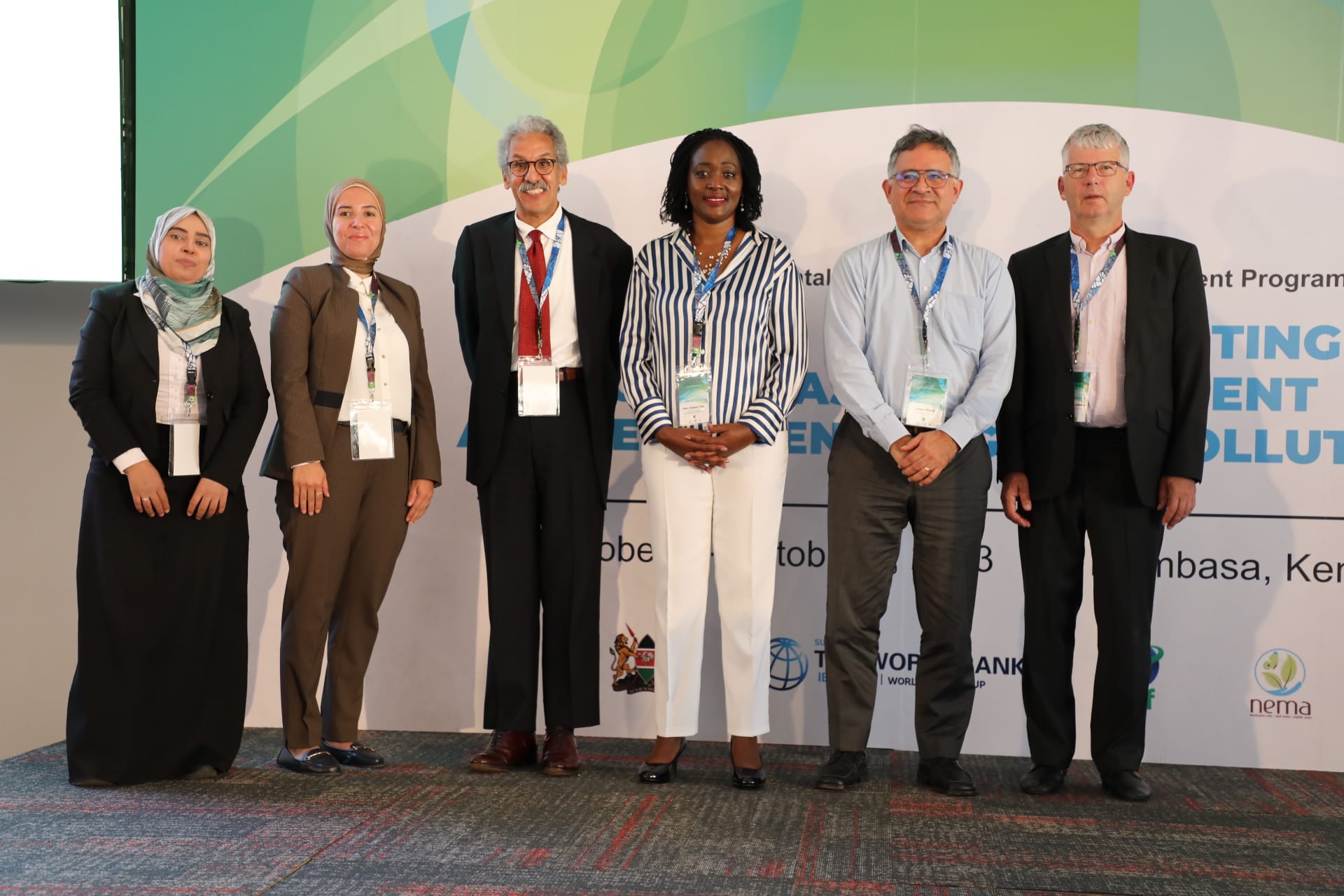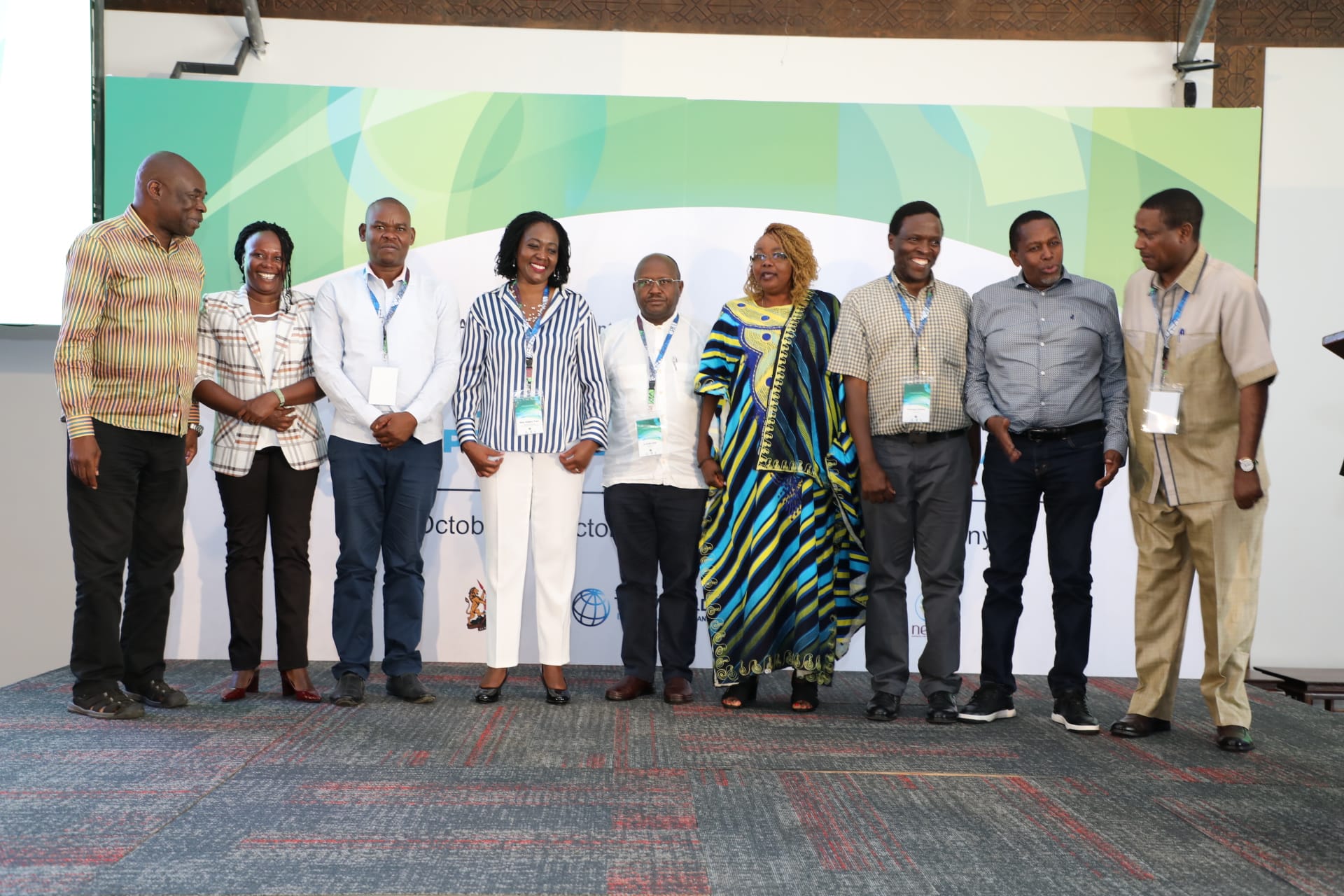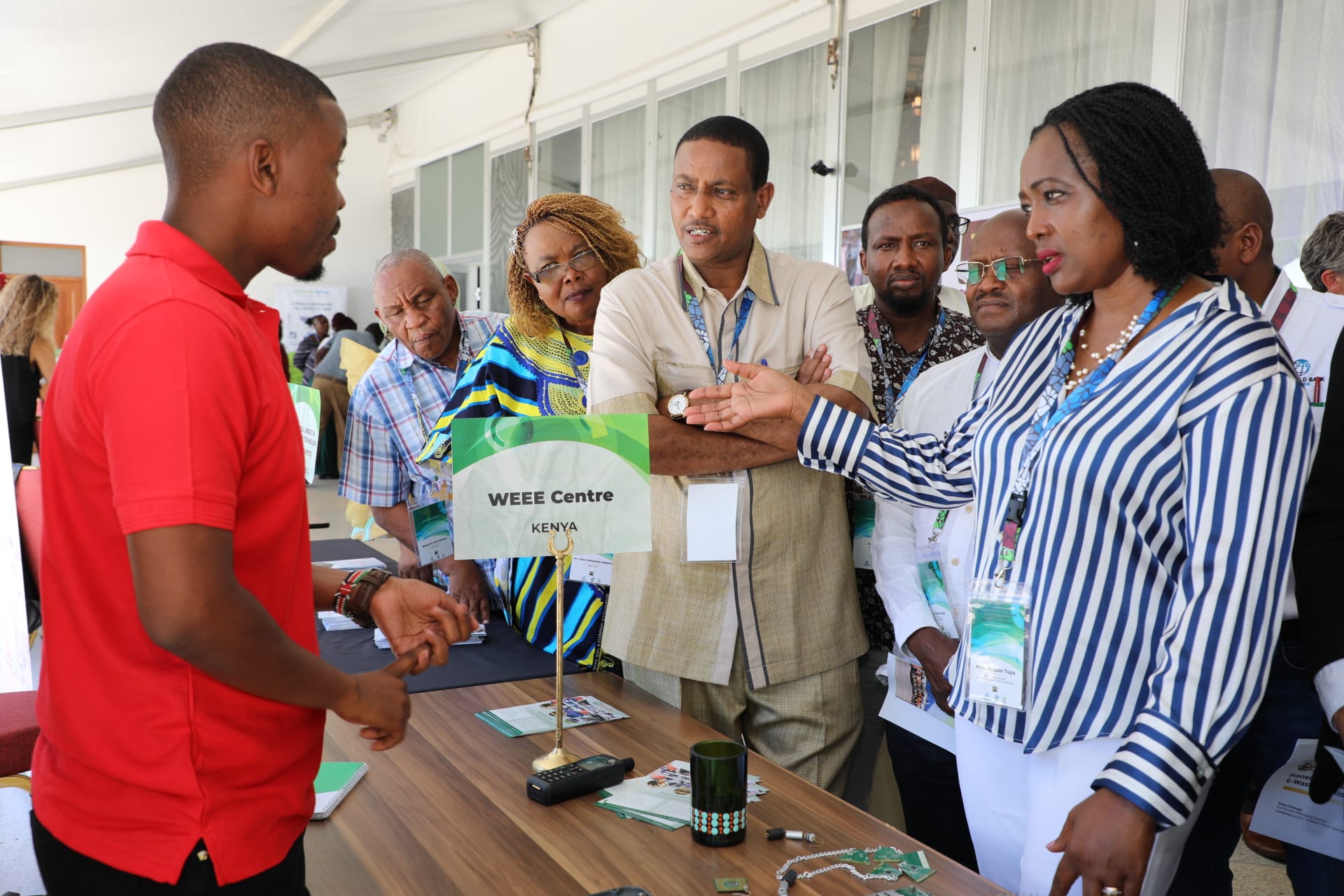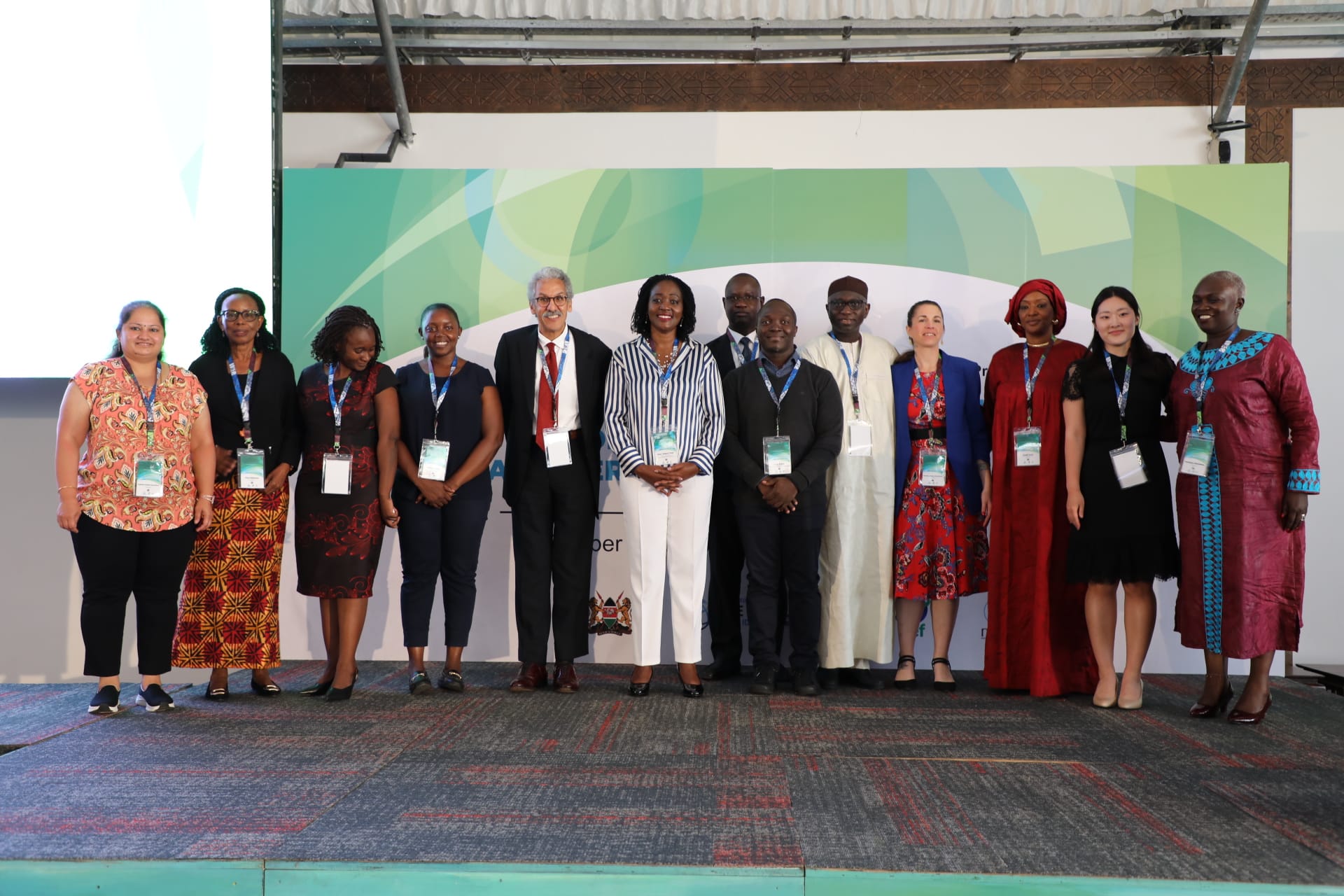The African Environmental Health and Pollution Management Project is a five years Global Environment Facility sixth framework funded project in five African countries notably; Kenya, Tanzania, Zambia, Ghana and Senegal with World Bank as the Implementing Agency.
In Kenya, NEMA is the executing agency and the project main objective is to strengthen institutional capacity to manage and regulate e-waste and related Unintended Persistent Organic Pollutants (UPOPS) in Kenya.
The inaugural African e-waste management and UPOPs was held in Mombasa Kenya from 2nd to 6th October, 2023.

The Environment, Climate Change and forestry CS Hon. Soipan Tuya with the World Bank team during the ewaste conference at WhiteSands Mombasa
Kenya, Tanzania, Zambia, Ghana and Senegal are working together under the African Environmental Health and Pollution Management Project to address issues of e-waste such as policy, knowledge and capacity building.
The opening ceremony was presided over by the Environment, Climate Change and Forestry. Cabinet Secretary, Hon. Soipan Tuya. The weeklong conference brought together stakeholders across the globe.
In line with the Stockholm Convention on Persistent Organic Pollutants, Kenya is working with partners to protect human health and the environment from harmful Unintentional Persistent Organic Pollutants (uPOPs), mercury and e-waste through a series of interventions.
"The Government is setting up a pilot e-waste handling facility at Konza Technonopolis to open up the e-waste value chain for wealth and employment creation in line with the Bottom-Up Economic Transformation Agenda (BeTA) blueprint and the Ministry's circular economy programme," CS Tuya stated.
She added stated that the Ministry is working with Counties to build their capacity to handle waste. She added that the engagement with World Bank and the Green Environment Facility to build a Material Recovery Facility (MRF) at Konza, the first in Africa will be a milestone in management of e-waste. There are currently only 2 MRFs in the world based in Europe.
"Kenya generates 51.3 metric tonnes of e-waste each year but only 1 % is collected and recycled. We are working with World Bank and Green Environment Facility to advance sound e-waste management to safeguard our environment and our people," NEMA Director General, Mamo B. Mamo, EBS stated.

The Environment, Climate Change and forestry CS Hon. Soipan Tuya with the NEMA Board during the ewaste management conference in Mombasa
The Chairman, Emilio Mugo noted that the Authority's ban on single use plastic carrier bags in 2017 has contributed to a more clean country. He rallied the neighboring countries to also ban the bags to prevent proliferation of the bags into the country through the porous borders.
World Bank Lead Environmental Specialist & Program TTL, Abdelaziz Lagnaoui informed the gathering that the World Bank will continue working with African countries to build their capacity to manage e-waste as well as handle other emerging environmental challenges facing not only Kenya but the global community at large.
According to Africa Environmental Health and Pollution Management Project Coordinator, Dr. Charles Lange, the project implementation is at 40% since its launch in 2020. He stressed that the project has so far managed to transfer knowledge to various organizations and individuals dealing with ewaste recycling and build their capacity to manage ewaste.
Electronic and e-waste commonly referred to as e-waste is emerging as one of the most critical environmental challenge globally, regionally and nationally.

The Environment, Climate Change and forestry CS Hon. Soipan Tuya interacting with the WEEE centre CEO, Bonnie Mbithi during the ewaste management conference
Currently e-waste accumulation is reaching unsustainable level and owing to management challenges, they are becoming a major source of environmental pollution.
In Kenya, electronic waste is the fastest growing waste component, with an estimated 51,300 tons of electronic waste being generated in annually. Owing to e-waste management challenges, e-waste is often mixed with other municipal waste and disposed at open dumpsites where it is treated through open burning.
Such open burning for ewaste disposed is the significant source of Polybrominated Diphenyl Ethers (PBDEs), Polychlorinated Biphenyls (PCBs), Hexabromocyclododecane (HBCD), dioxins, furans, cadmium, beryllium, and lead release to the environment and can lead to severe human health and environmental hazards.

The Environment, Climate Change and forestry CS Hon. Soipan Tuya with the World Bank team from the five African counties-
Kenya, Tanzania, Zambia, Ghana and Senegal during the ewaste management conference in Mombasa




 Popo Road,South C, off Mombasa Road
Popo Road,South C, off Mombasa Road P.O.BOX 67839-00200, Nairobi. Kenya
P.O.BOX 67839-00200, Nairobi. Kenya Mobile: 0724 253398, 0735 013046.
Mobile: 0724 253398, 0735 013046. Email: info@nema.go.ke
Email: info@nema.go.ke